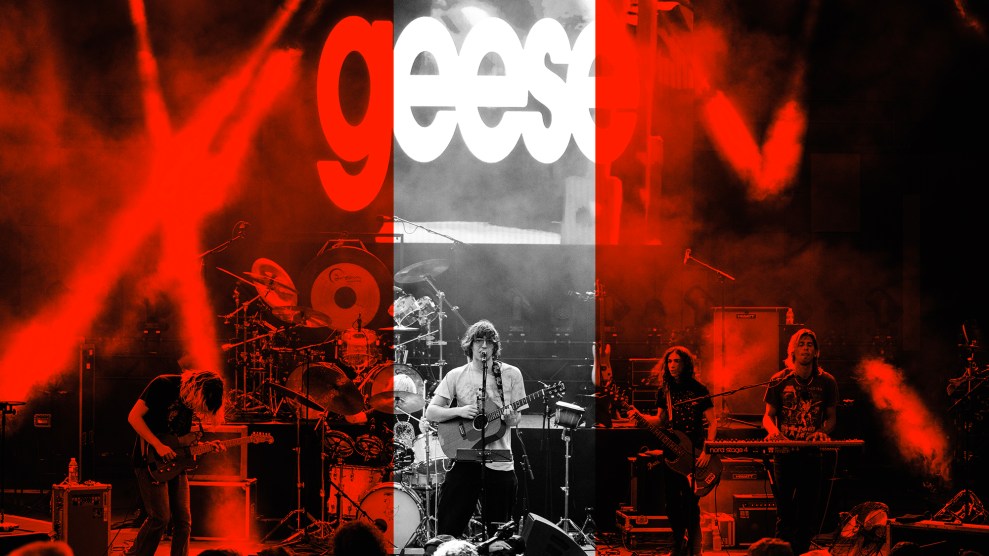It’s been a brutal month for journalism. How many times have I written that sentence now, and how many more times will I need to write it? Enough that I wasn’t going to write it again, despite the headlines about an “extinction-level event” for our profession.
But as the immortal xkcd reminds us, you must weigh in when someone is wrong on the internet, and there’s a particular kind of wrong that surfaces at moments like this: the dream of a savior. Surely there is some smart man, somewhere, who will think of a direction, a new model, “something that can grow big we haven’t even thought of yet.”
Sir Will Lewis, the new CEO of the Washington Post, is a smart man and also, in the words of media columnist and entrepreneur Ben Smith, who interviewed him for his Semafor column, “a relentlessly charming Brit whose uniform is sleek sweaters and expensive-looking sneakers.” After beginning the interview with a pitch to “do some business” together, Lewis shares his take on what’s wrong with said business: “My hunch is that the existing model is creaking.”
Creaking?? We are losing newspapers at the rate of 10 a month. Some of the biggest newsrooms of the digital age have shut down or are circling the drain. Layoffs are happening at a record pace (at least 800 of them this January alone, on top of a record layoff year in 2023). The Washington Post, Vice, Time, Sports Illustrated, the Los Angeles Times. Even the Wall Street Journal. Not to mention the Baltimore Sun, purchased by the conservative billionaire who owns Sinclair Broadcasting (of anchors-reading-canned-editorial fame). Propaganda is overwhelming people’s social feeds. Fox News is radicalizing a large part of the conservative movement toward authoritarian and fascist ideas. And the existing model is creaking? It’s creaking in the way that a house is creaking after it’s collapsed.
To fix the creaking at the Post, Lewis invokes a couple of tropes from 2012 and 2024, respectively: The company will achieve “scale” by “embracing AI in a much more effective way.” Fair—but almost everyone in the news business is going after some combination of scale and AI (some by letting robots flat-out make stuff up), and odds are it will work for very few. Maybe the Post will be one. I’m rooting for them. But what about the journalism that all of us need to keep democracy alive? What is—to use a word smart men love to toss out—the gamechanger for the news business?
There isn’t one. Period. End of story.
That’s not a doom prediction. It’s just a reality check. Because the news “business” is over. Dead. No smart guy or better mousetrap is going to get us to a world where quality journalism makes enough money to survive as a for-profit business.
And the truth is, it never did. There was a period when publishers and broadcasters raked in the dough because they were the only ones who could get ads in front of eyeballs. But even then, what made the money was not the shoeleather accountability work. It was the sports section, the real estate supplement, the bar ads.
That model did start creaking in the late 20th century. And then, sometime later, it stopped creaking. Because it was dead.
Sure, there are zombies walking around: hedge fund–owned newspapers, digital startups trying to party like it’s 2009, magazines run by Anna Wintour. But they are getting shakier with each year, sometimes each week. The Messenger, which launched last year with a promise to assemble a giant audience with viral stories and softball Donald Trump interviews, was still publishing when I started writing this column. By the time I found a closing sentence eight hours later it was gone, having set on fire $50 million in startup capital—enough to run Mother Jones well into 2026.
Some news companies have managed to avoid zombification, most notably the New York Times. But that’s because the Times found a business model as a lifestyle brand for the literate, cosmopolitan, and somewhat liberal. How many news-based lifestyle brands can there be?
No doubt there will be a handful of other commercial news organizations that thrive as for-profit companies. But a handful is nowhere near enough. We need thousands of robust newsrooms to serve the many different audiences that make up our democracy. And to get there, we need to stop pretending journalism can make anyone rich, and instead try like hell to serve the public interest… while breaking even.
That’s it. No fancy mousetrap, no shiny object for investors or funders. No billionaire owners who might push out the editor-in-chief because they’re upset with coverage of their friend’s dog. No faux centrist news from conservative heavyweights. Just a hard slog of putting together the money, one dollar at a time, to give people the information they need to change the world, one heart and mind at a time.
That’s what Mother Jones has been trying to do for the past (nearly) half-century. It’s the toughest model to make work. Except for all the others.
Here’s a proposition to all those funders, donors, and investors looking for the Next Big Thing. It’s not quite “one weird trick,” as the internet used to say, but there is a pretty simple formula for survival in the news business. The Next Big Thing, it turns out, might be the Big Thing That Was There All Along:
- Create solid journalism that earns the trust of a community—geographic, identity-based, or interest-based (for example, Mother Jones’ community is one of people who want to see the world change for the better).
- Give folks a chance to support that journalism with their money, attention, and input
- To that foundation of trust and support, add an honest, smart business operation that brings in whatever other forms of revenue are available so long as they don’t undermine #1.
That’s it! No white papers, no pitch decks, no BS. Mother Jones was founded in 1976, which means we qualify as legacy media, but we’ve never raked in the dough: When your goal is to challenge authority, expose wrongdoing, and disrupt the status quo, it means survival is always a struggle. Not long after I joined here in the 2000s, our publisher told me that it might soon come time to “throw a raucous party and call it a day.”
Which brings me to the Thursday, a couple of weeks ago, when we did have a little party. But instead of calling it a day, we celebrated a new day as our merger with The Center for Investigative Reporting became official.
It wasn’t easy to get this done when the economics of news are all pulling against us. There are savings—no more separate insurance policies, offices, etc.—but this wasn’t the kind of merger that cuts costs by laying off staff. Not right at the time when this kind of reporting is needed the most. We wanted to save journalism jobs, and a great journalistic platform (Reveal, the weekly investigative radio show that now joins our digital channels, social presence, and print magazine so we can reach even more people all over the country.)
With so much (so much) uncertainty, we don’t yet know where we’ll find all the funding to keep this new, stronger, more impactful organization going for the long term. We live and die by how much we can bring in month after month, year after year. Most years it requires a pretty big leap of faith—and now that leap of faith is bigger. Not going to lie, it’s a little scary.
But it’s also amazing to have the chance to try. Because we’ve known for a long time that what it takes to save journalism is not a smart dude with a big idea. It’s a willingness to build something better than what we used to have, to split the mission from the profit, and to build a movement that all of you—the readers, listeners, and viewers who want the kind of journalism that enables and strengthens democracy—can be part of.
That’s not something a banker will lend us money on or an investor is going to write a giant check for. But it is what we can make happen together, at this scary, urgent, and, dammit, also hopeful time. Because it’s not just another brutal moment for journalism. It’s also a moment that begins something new.
















